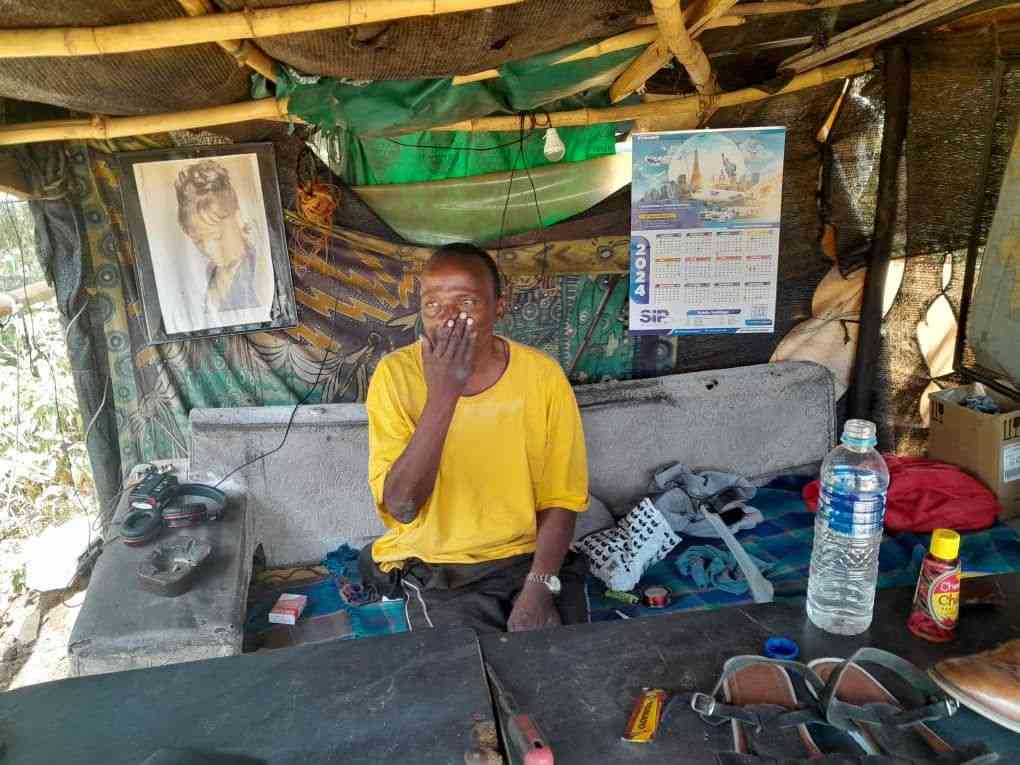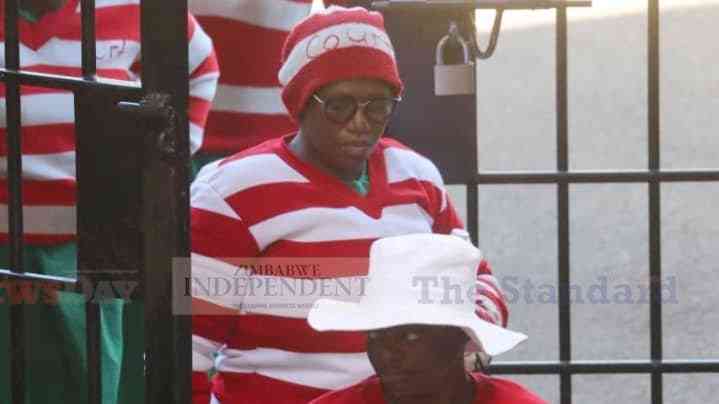
AT the crack of dawn every morning, the 52-year-old ailing and disabled Vernon Ntaisi drags himself out of his plastic makeshift shack at the backyard of Hillside shopping centre in Bulawayo.
The shack, which is his home and work station, is assembled crudely from discarded pallets, wooden poles, rusty metals and tattered plastic sheets.
There are flies all over and no running water.
For Ntaisi, who was left homeless after the death of his mother who was nursing him, such inhuman conditions have become his place of solace for the past five years.
In an interview, Ntaisi told Southern Eye on Sunday that his disability and the death of his mother forced him onto the street.
Other family members refused to accommodate him because of his condition, he said.
“I stayed in South Africa for close to 15 years and when I went there, I was fit and strong and was able to provide a very decent lifestyle for myself,” a visibly distraught Ntaisi narrated.
He recalled in nostalgic detail how he lived as an able bodied person before his life turned upside down.
- Revisiting Majaivana’s last show… ‘We made huge losses’
- Edutainment mix: The nexus of music and cultural identity
- ChiTown acting mayor blocks election
- Promoter Mdu 3D defends foreigners 30 minute set
Keep Reading
“I was running a tuckshop but unfortunately I was caught up in a shootout and got shot four times which left my spinal cord affected,” he said.
“I felt sick and could not do anything for myself and I had to come back to Zimbabwe. Due to my dire situation I had to stay with my mother and stepfather. Unfortunately, my mother fell ill and she passed away.”
Ntaisi said his stepfather did not take long to kick him out of his house.
“That was the beginning of my misery,” Ntaisi said as he struggled to hold back his tears.
Ntaisi, who was evidently in excruciating pain, said he slept in one of the trenches for days since that fateful day when he was evicted until he managed to gather scrap materials to make a shack.
“When I was chased away from home, I managed to take my few clothes and for a while I slept in the trench close to the Hillside shops,” he said.
“After a while I managed to gather some scrap material to build my shack.
“Since that time, I have been staying here.”
Ntaisi said he never imagined a life on the streets.
“When it rains my shack gets flooded with water and sometimes thieves come and steal whatever I have when I am sleeping,” he said.
“I am tired of this life.”
Asked if any of his relatives could not take him in, he said the death of his mother separated the entire family.
Despite living in agony and extreme poverty, Ntaisi has kept a positive attitude and shown resourcefulness in finding a solution to alleviate the challenges he is facing by being a cobbler.
Ntaisi said he could not afford to get treatment but all he could do was raise a few dollars to buy painkillers to ease the pain.
“Despite my difficulties, that have left me living this very miserable life, I have resorted to being a cobbler and this is how I have managed to put food on my table and get painkillers to ease the pain,” he said.
“Because of my condition I cannot work like before because I cannot walk and I am in unbearable pain.
“My leg hurts so badly and no matter how much I want to try and work I cannot because I am partially paralysed.”
Ntaisi said he makes at least US$7 per week.
“I somehow managed to start working as a cobbler here at my shack and I do get customers here and there, on a good week I can make up to $7 which I use to buy food and painkillers,” he said.
“I should be going to the hospital but at this point I cannot afford it.”
“I am now worried because I am developing sores on my body that ooze out throughout the day and as you can see all these flies around me are because of these sores.”
Ntaisi said his hope and wish was to find well-wishers who could buy him a wheelchair to enable him to conveniently move from one point to the other.
He also needs assistance to pay for his hospital bills so that he could seek professional medical assistance, as his health was deteriorating by the day.
“Asking someone to take me in, in this condition would be asking for too much,” he said.
“All I am asking for is someone to get me a wheelchair and to pay for my medical treatment for me to get back to my normal self.
“Day by day I am losing hope. My ship is sinking! I can feel it!”







